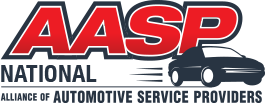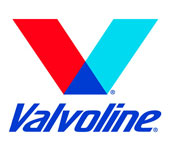
Preventative maintenance is the best way to ensure your vehicle stays reliable, and lets you avoid major repairs as well as the expenses that come with them. At Floyd's Tire & Car Care, we provide a complete preventative maintenance program, and carry all the necessary parts and expertise to take care of the little jobs that let you avoid the big ones.
Choose from a comprehensive range of the fluids, oils, filters, and belts that your vehicle needs to keep running happily and healthily. Relax while your ride is inspected by our highly-trained technicians, and rest assured that it'll keep running smoothly for miles and miles.
10 Minute Pre-Trip Checkup Can Pay Off
A properly maintained vehicle is safer and more dependable and will even save a few dollars at the gas pumps. Motorists should plan ahead to allow time to perform necessary maintenance themselves or at the local service facility.
Car Care Council offers three suggestions for a traveler's 10-minute pre-trip checklist:Check all fluids - There are several fluids that require attention: Engine Oil, power steering, brake and transmission fluids, and windshield washer solvent and antifreeze/coolant.
Check all hoses and belts - A belt failure can affect the electrical system, air conditioning, power steering, and the cooling system. Cooling system hoses may be deteriorating from within, so old hoses and clamps in marginal condition might need to be replaced.
Check the tires - Check tire inflation and inspect the tread for uneven wear, indicating the need for wheel alignment. Also look for bulges and bald spots along the tire's surface.
Follow these tips to maximize fuel efficiency of your vehicle:
Boost your vehicle's fuel efficiency with these simple yet effective tips. From regular maintenance checks such as monitoring tire pressure and replacing worn spark plugs to cultivating mindful driving habits like avoiding aggressive maneuvers and excessive idling, these strategies can help you optimize fuel usage and save on costs in the long run.
Vehicle Gas Caps
Regularly checking and ensuring the proper sealing of your gas cap is crucial. Surprisingly, approximately 17% of vehicles on the roads today have gas caps that are either damaged, loose, or entirely missing. This seemingly small issue leads to the vaporization of around 147 million gallons of fuel each year.
Under Inflated Tires
Maintaining proper tire pressure is crucial for optimal fuel efficiency. Driving with underinflated tires is akin to driving with a parking brake engaged, resulting in a notable reduction in mileage, often costing a mile or two per gallon. Regularly checking and maintaining the correct tire pressure can significantly improve fuel efficiency.
Worn Spark Plugs
The spark plugs in a vehicle, whether four, six, or eight in number, endure an incredible amount of stress, firing up to 3 million times every 1,000 miles. Such persistent use can lead to both electrical and chemical erosion from the generated heat. Regular inspection and timely replacement of worn spark plugs are essential for maintaining fuel efficiency.
Dirty Air Filters
A clogged air filter can disrupt the ideal air-fuel mixture, leading to a "rich" mixture where the proportion of gas to air is imbalanced. This not only results in fuel wastage but also causes the engine to lose power. The simple act of replacing a clogged air filter can enhance gas mileage by as much as 10%, making it a crucial maintenance step for fuel efficiency.
Don't Drive Aggressively
Aggressive driving habits, such as sudden accelerations and abrupt stops, can significantly reduce gas mileage. In fact, aggressive driving can decrease gas mileage by up to 33% on the highway and 5% on city streets. Opting for smoother driving habits can substantially improve fuel efficiency.
Avoid Excessive Idling
Allowing a vehicle to idle for extended periods consumes fuel without yielding any mileage. Minimize unnecessary idling, and avoid letting the vehicle warm up for more than one to two minutes as excessive idling contributes to unnecessary fuel consumption.
Drive the Speed Limit
Maintaining a consistent speed and adhering to the speed limit can play a vital role in fuel efficiency. Gas mileage tends to decrease rapidly at speeds exceeding 60 mph. For every mile driven above 60 mph, you can expect an additional 10 cents per gallon in fuel costs. Utilizing cruise control can also help in maintaining a steady speed, thus enhancing fuel efficiency during highway driving.
What our clients are saying about us
We have established longterm and stable partnerships with various clients thanks to our excellence in solving their automotive needs!
Drove in from Ohio Friday night. Car broke down on busy I-70. Called AAA for auto shop recommendations, they gave me two that were the closest. Called the first only to be told can't help us. Second call was to Floyd's. They said get car there in the morning and we'll look at it. Dropped car off, spoke with Nikki and left. Returned a few hours later and was told all checks came back good (no codes or mechanical history showing why it broke down). They ran car thru the paces and still found all okay. I cannot thank the team there that Saturday enough for looking into our car issue. This allowed us that peace of mind to drive back home. We highly recommend Floyd's to everyone who has auto needs. They are fair, friendly and go well above expectations for service.

I drove to St. Louis area for a business meeting. 6 hour drive. Had some issues with my Dodge Durango on the way down, but made it in time for my meeting. When meeting was done for the day(around 6:30) I tried to start my car and found it would not start. I called Floyds. They had a tow truck there within an hour. The next day, by 2 pm they had left me a message saying it was fixed and I could come and get it. AND...the price for towing and repair were acceptable. Very fair and car now works as it should. Thank you Floyds.













